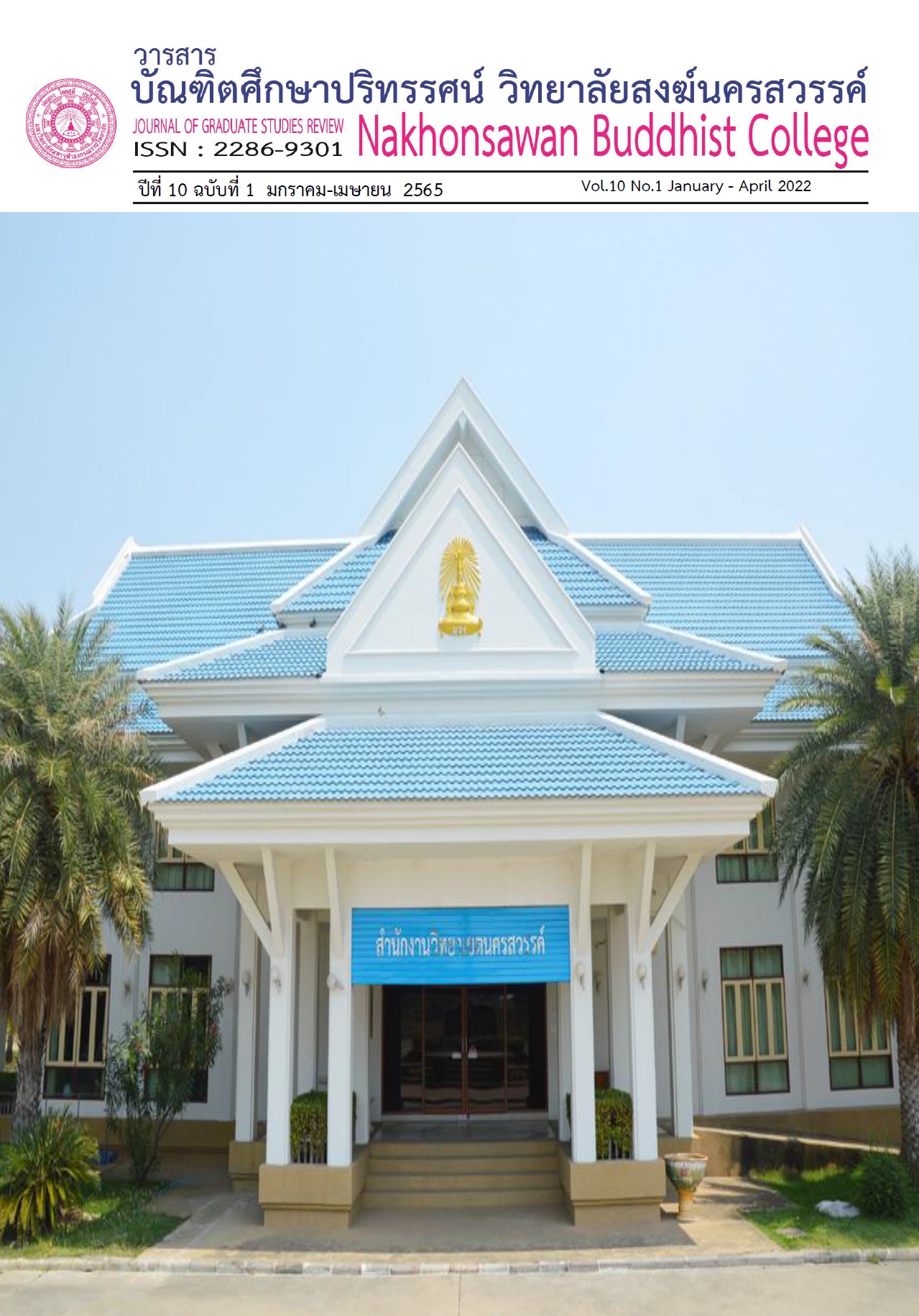การบริหารการประกันคุณภาพการศึกษาของสถานศึกษาขั้นพื้นฐานตามหลักพุทธธรรม
Main Article Content
บทคัดย่อ
บทคัดย่อ
การประกันคุณภาพของสถานศึกษามีความสำคัญต่อการพัฒนาคุณภาพสถานศึกษาเพราะเป็นการตรวจสอบประเมินผลการดำเนินงานว่าสถานศึกษาได้พัฒนาคุณภาพการศึกษาอย่างมีคุณภาพ เมื่อเปรียบเทียบกับเกณฑ์มาตรฐานของสำนักงานรับรองมาตรฐาน และประเมินคุณภาพการศึกษา (สมศ.) ซึ่งจะทำให้ทราบสภาพการดำเนินงานบรรลุเป้าหมาย มีสภาพปัญหาจุดอ่อน ที่ต้องแก้ไขปรับปรุง สถานศึกษาสามารถจัดการศึกษาตามเจตนารมณ์ของพระราชบัญญัติการศึกษาแห่งชาติ พุทธศักราช 2542 การดำเนินงานต้องมีการกำหนดมาตรฐานให้สอดคล้องกับบริบทของสถานศึกษา มีการจัดทำแผนพัฒนาคุณภาพสถานศึกษา แผนปฏิบัติราชการประจำปี จัดทำระบบสารสนเทศอย่างเป็นระบบ จัดให้มีการประเมินและดำเนินการตรวจสอบ ทบทวนคุณภาพอย่างสม่ำเสมอ จัดทำ เผยแพร่รายงานประจำปีและที่สำคัญสถานศึกษาต้องจัดให้ครู นักเรียน ผู้ปกครอง และชุมชนเข้ามามีส่วนร่วมในการดำเนินงาน โดยการนำหลักอิทธิบาท4 คุณธรรมที่นำไปสู่ความสำเร็จแห่งผลที่มุ่งหมายเป็นแนวทางการทำงานที่พระพุทธองค์ได้ทรงสดับไว้อย่างแยบคาย อันประกอบด้วย แนวปฏิบัติ 4 ข้อ คือ ฉันทะ วิริยะ จิตตะ วิมังสา ซึ่งแต่ละข้อต่างมีหน้าที่เฉพาะของตนต่อเนื่องหนุนเสริมกัน จะขาดข้อใดข้อหนึ่งไปไม่ได้ เพราะเป็นกระบวนการที่เชื่อมโยงกันทั้ง 4 ข้อจึงจะทำให้ประสบผลสำเร็จในชีวิตและการงานได้ตามความมุ่งหวัง


